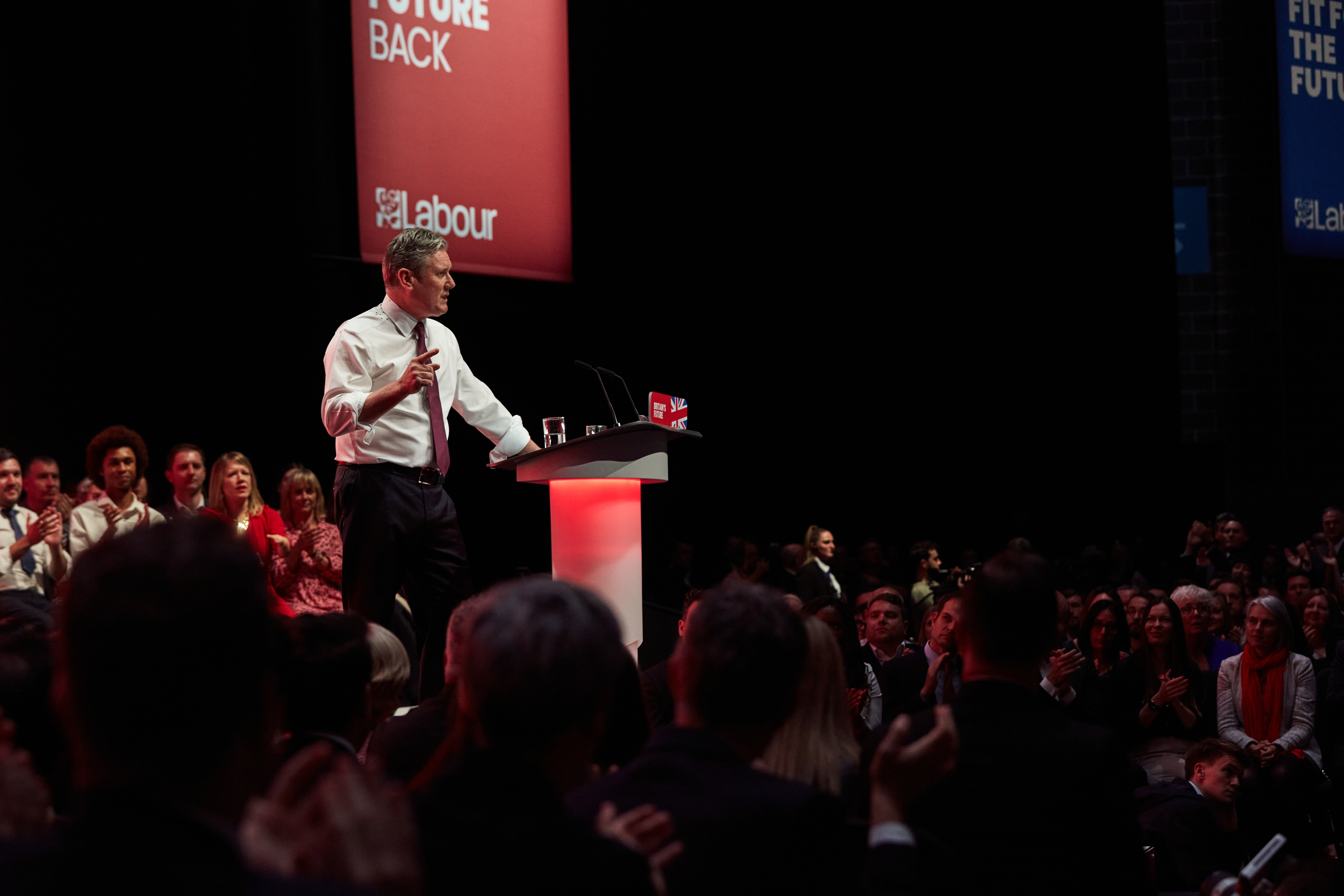Spotlight on tech at the Labour Conference
by Sofia Marchetti on 08 Oct 2024
The Labour Party's annual conference took place in Liverpool from Sunday 22 September to Wednesday 25 September. While the conference did not provide much detailed policy discussion, it was a chance for the new government to communicate its agenda and the role it foresees for tech. In this blog, we outline the key takeaways and policy announcements from tech discussions at the Labour conference.
In his speech, Secretary of State for Science, Innovation and Technology Peter Kyle set out his priorities and plans for the year ahead and presented his team, made up of Chris Bryant (Minister of State for Data Protection and Telecoms), Lord Patrick Vallance (Minister of State), Baroness Maggie Jones (Under-Secretary of State for Future Digital Economy and Online Safety), and Feryal Clark (Under-Secretary of State for AI and Digital Government).
The conference was an opportunity to identify those in the new intake of MPs who are interested in tech policy. MPs, including Lucy Rigby (a former competition lawyer), Samantha Niblett (co-chair of the APPG on FinTech), Andrew Pakes (who spoke at an event on AI and workers' rights), Kanishka Narayan (a former civil servant), Josh Simons (former director at Labour Together), Gordon McKee (who spoke at events on the UK startup ecosystem), Claire Hughes (previously an adviser to Labour on digital transformation with a background in the tech industry), and Daniel Aldridge (who also showed interested in startup events), attended and spoke at several tech-focused events in the fringe.
Harnessing technology to achieve growth
The key theme of Peter Kyle's speech was AI adoption (especially in public services) coupled with the need to ensure economic growth. The tech secretary described the government's goal of realising AI's opportunities for those working in education, research, and the NHS. He also announced plans to raise the AI Safety Institute, launched in 2022 by then-PM Rishi Sunak, to statutory level as anticipated.
Another topic was that of data, or more specifically, data centres. Mr Kyle ended his speech with a wish for Britain to be known for its "databanks" rather than the shame of "food banks", while Chancellor Rachel Reeves listed new data centres as one of Labour's objectives.
Mr Kyle emphasised the need for British businesses not to fall behind and wanted the benefits of the government's pursuit of innovation to be shared within the country. This ambition has manifested itself in efforts, such as Project Gigabit, to increase connectivity and digital inclusion. Finally, he confirmed plans announced in Labour's manifesto for a Regulatory Innovation Office (a body, formally launched on 8 October, which would set targets for tech regulators in order to end uncertainty for businesses) and a National Data Library (which would bring together existing research programmes and help deliver data-driven public services).
One topic which was largely absent from tech discussions at the conference was online safety. Still, Mr Kyle noted in his speech his commitment to implementing the Online Safety Act and Home Secretary Yvette Cooper said the government planned to "bring in new laws to crack down on dangerous online sales" and gangs (via the Product Regulation and Metrology Bill, currently going through Parliament).
Resisting the Brussels effect?
Labour's planned closer relationship with the EU prompted questions about whether it would seek to imitate the EU's regulation of AI. At the same time, Labour has strived to portray itself as a party which is not just "pro-worker" but also "pro-business" as both Ms Reeves and Business Secretary Jonathan Reynolds emphasised. In his speech, Mr Kyle claimed his department wanted to "make Britain the most attractive place to invest, start-up and grow businesses."
Conference attendees were thus surprised to hear AI Minister Feryal Clark announce, at a Tony Blair Institute event, that the government would issue legislative proposals addressing the use of copyrighted materials to train artificial intelligence models. While specifics are not yet known, some of the measures discussed - e.g. additional transparency requirements on AI developers and an opt-out mechanism for copyright holders - suggest similarities with the EU regime. However, DSIT officials said that no final decision had been taken. The AI minister herself appeared to go back on her comments when questioned a week later at The Times' tech summit. Less controversially, Ms Clark confirmed that the AI Bill would keep its narrow focus on safety and target only frontier AI.
What's next
Ms Clark said she hoped the AI Bill would be pushed through before the end of the parliamentary session, with proposals on copyright announced in October. The minister confirmed that the report on the opportunities of AI by Matt Clifford, chair of the Advanced Research and Invention Agency (ARIA), would also be published in October before the Budget. Inline will be monitoring these bills and related policy developments, so please get in touch if you have any questions.
Topics: Artificial Intelligence (AI), Data policy, Technology, digital policy

Written by Sofia Marchetti
Sofia provides policy analysis, monitoring and advice to tech clients from Inline’s London office. Before joining Inline, Sofia worked as a Schuman trainee at the European Parliament and as a research intern at ECA International.





Comments